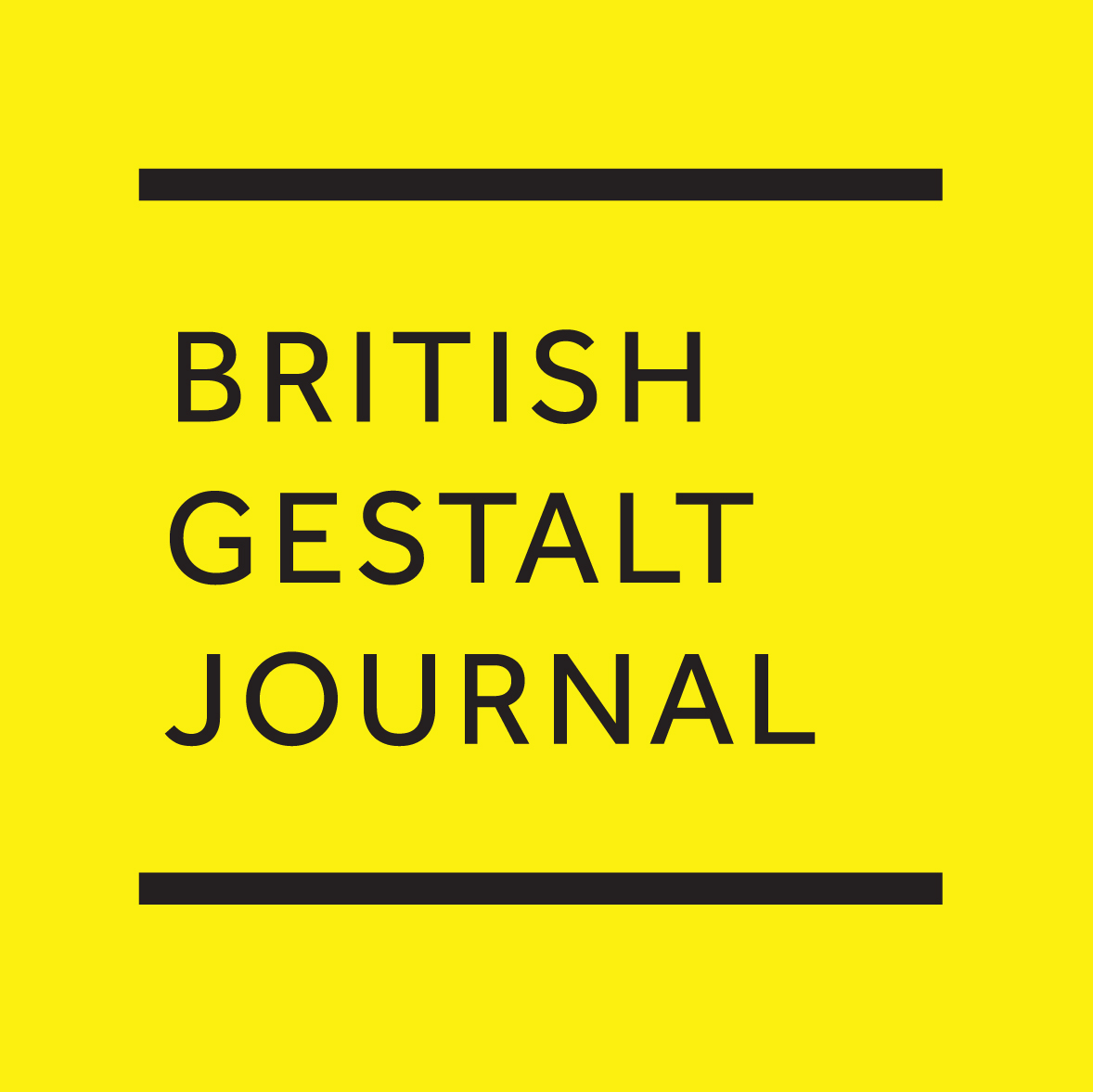Volume 9, 1 (2000)
Volume 9, 1 (2000)
THE BRITISH GESTALT JOURNAL 2000, VOLUME 9, 1
CONTENTS
Editors - Neil Harris and Paul Barber
For Whites Only - Lynne Jacobs
Creative Adjustment and the Global Field - Malcolm Parlett
Shame in the Supervisory Relationship: Living with the Enemy - Anne Kearns and Penny Daintry
EDITORIAL
We are making our first contribution to editorial writing at a good time for the British Gestalt Journal. We are able to bring you news of some significant developments in the Journal's organisation and in the Gestalt community in the United Kingdom.
Two Significant Developments
At the end of 1999, in the face of financial strictures that threatened the survival of the BGJ, the editor made an appeal for sponsorship and financial support. What has emerged is a solid and international response, one that has led to the formation of the Friends of the British Gestalt Journal. The Friends have made a critical difference. Financially the Journal is now on a good footing, and our uncertain future has been transformed into one that is more assured. An open invitation to readers to become Friends of the Journal remains, so as to consolidate and expand this valuable foundation of support. The Friends are listed by name on the inside back cover.
A second development is that the journal now has a web presence, one that is both elegant and easy to use. At present the contents of current and past issues can be viewed, and abstracts are available. Visitors may also download an order form and subscribe to the Journal. In due course there will be a search facility enabling rapid location of specific items of interest. For the time being the journal will remain a hardcopy presentation. However, the world of publication is in rapid transformation, and we intend that the journal will be surfing these breaking waves of change. Will those who access this site please send their views and suggestions to the journal office.
In This Issue
In Lynne Jacobs’ wonderfully crafted article she tells her story of facing and exploring a crucial factor in the societal field, that of race. Her honesty is illuminating. She writes with passion, as she seamlessly links issues of the consulting room to those of the street.
Passion is also present in Malcolm Parlett's article on the politics of therapy in the global field, which takes field theory into the realms of social responsibility and individual and societal issues of creative adjustment. This is a seminal paper which will hopefully encourage much interest and debate.
Anne Kearns and Penny Daintry, in their article 'Shame in the Supervisory Relationship', illuminate another taboo area that has far too long remained in the shadows.
We also have a robust exchange of letters in the present edition, in that John Harris's article on 'Gestalt Learning and Training' - published in the previous issue - has sparked a lively and welcome debate. Gary Yontef, Anna Farrow, Toni Gilligan, Michael Vincent Miller, and Gaie Houston contribute a series of critiques, ideas and reactions. There are arguments for attention to be paid to the known; an appeal for Gestalt to be taught as a discipline for life; and expansion of Harris' view of the role of the trainer. There is reflection on the learning process and the tension between initial learning through introjection and the need to learn through fully engaging with 'what is'. The challenging proposal that students should design and direct their own learning is repeated.
Bringing our attention to work with couples, Judith Hemming reviews two books looking at the state of the modern marriage, and possible interventions in working with couples. She uses the different standpoints of the two authors, one pessimistic and intellectually rigorous, the other humorous and hopeful, to draw out some important common themes that we might choose to bear in mind in couples work. Writing a book review in this way not only gives us a detailed introduction to important works, but also puts them in a considered intellectual and practical context.
Finally, Jude Higgins reviews Gaie Houston's cookbook, another deceptive example of the essential nourishment to be found in light heartedness. The reviewing of a recipe book in a professional journal is unusual, but given the importance of sensuous knowledge and the place of food and eating in the history of Gestalt, it has felt entirely appropriate to include this review.
Acknowledgement and Changes
Vanja Orlans has left the staff of the British Gestalt Journal to pursue other ventures. Our thanks to her for her successful editing of the book reviews over several issues. Other news is that Jennifer Mackewn has taken over as chair of the board of directors of Gestalt Publications Ltd, the publishers of the BGJ. Carol Siederer and Paul Barber have joined the board of directors, and regretfully Judith Hemming has left the board after serving on it from the beginning of our being an independent publication. She continues, of course, in a very central role, as the deputy editor.
Neil Harris and Paul Barb
LETTERS TO THE EDITOR:
The Importance of Professional Knowledge: A Response to John Harris - Gary Yontef
Questions for Gestalt Educators: A Response to John Harris - Anna Farrow
On Being a Trainer: Thoughts Stimulated by Reading John Harris - Toni Gilligan
Murky Waters: A Response to John Harris - Michael Vincent Miller
Training: Who is to be Trained for What and How? A Response to John Harris - Gaie Houston
Reply to Yontef, Farrow, Gilligan Miller, and Houston - John Harris
BOOK REVIEWS:
Intimate Terrorism, the Deterioration of Erotic Life, by Michael Vincent Miller and Back to the Beanstalk, Enchantment and Reality for Couples, by Judith Brown - Judith Hemming
Here and Now Cookery: The Therapist in the Kitchen, by Gaie Houston - Jude Higgins

